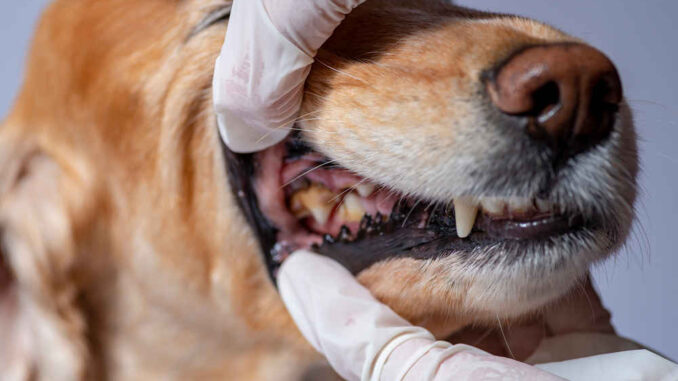
This article was updated on April 29th, 2023
As any human that has ever had an abscessed tooth will tell you, this is a very painful issue to have. However, dogs have an innate tendency to hide their discomfort. An abscessed tooth may or may not cause a dog to stop eating, but there are signs to watch for. Below are some picture examples of dogs with abscessed teeth to aid in the identification of an abscessed dog tooth.
An abscessed tooth occurs when bacteria is able to enter the tooth’s root area and results in inflammation and infection under the gumline.
What a Dog Tooth Abscess Look Like (With Pictures)
Below is a list of key signs of tooth abscesses in dogs, along with pictures for each sign:
1. Swelling Under the Eye
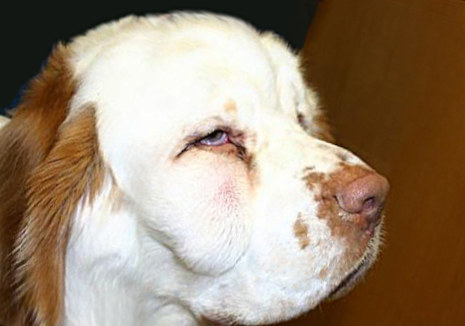
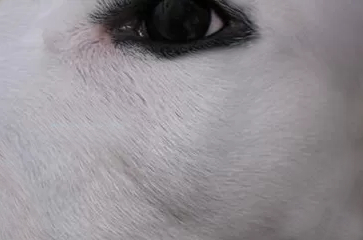
2. Small Ruptured Wound on Face
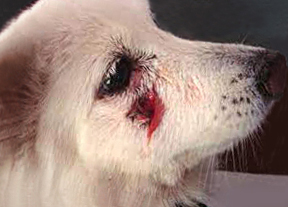
3. Cracked Tooth
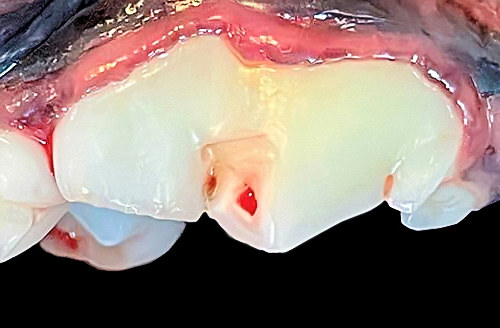
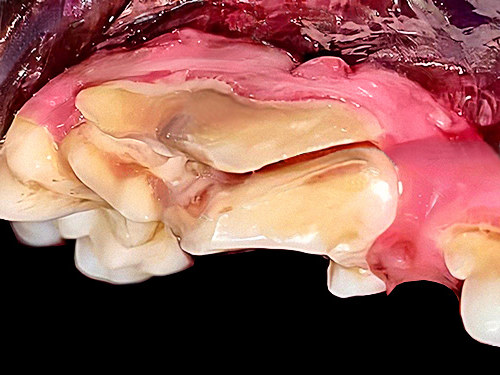
4. Gum Recession with/without Draining Tract
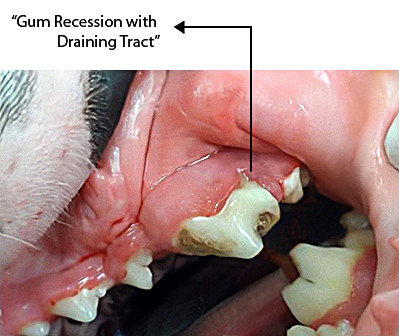
Below is a more obvious example of gum recession:
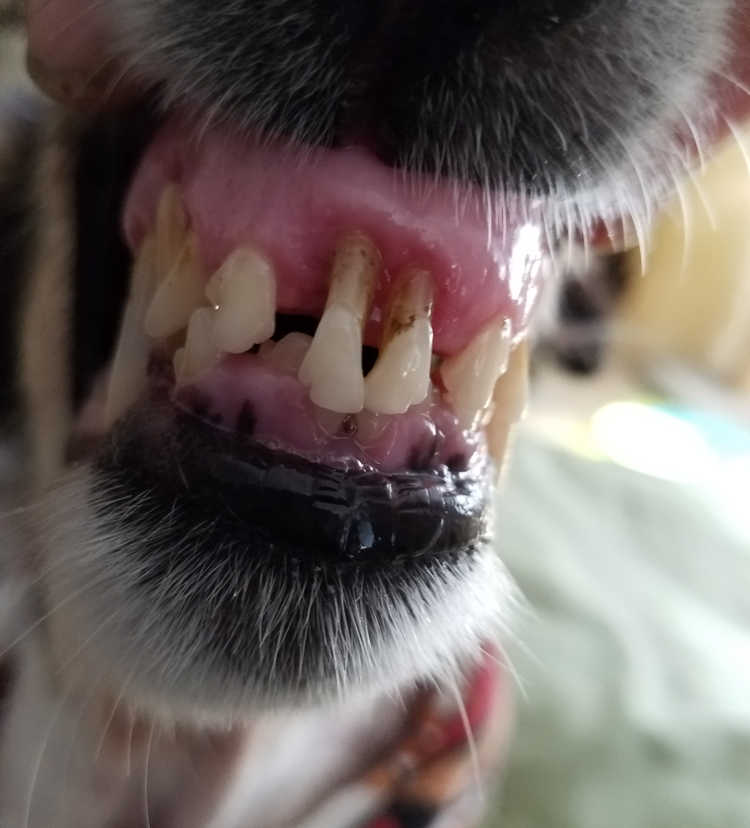
5. Red Gums
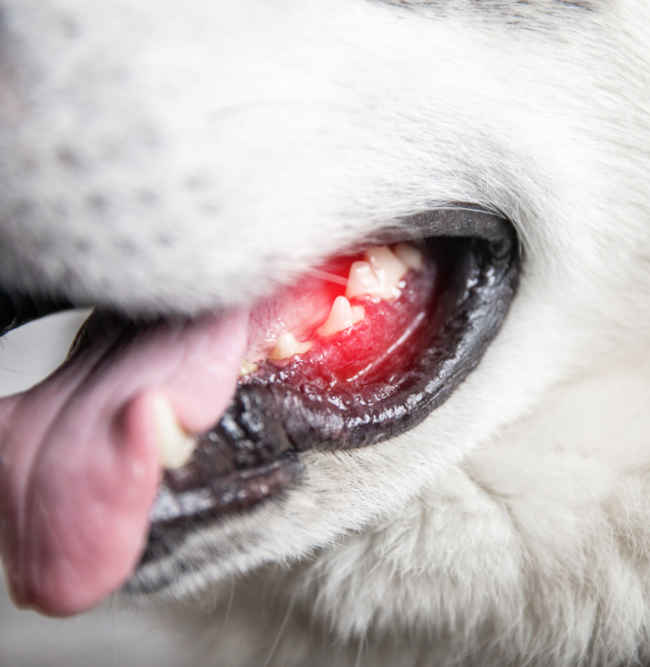
6. Periodontal Disease/Tartar Accumulation
Read our veterinarian’s article about the 5 best ways to remove tartar in dogs.
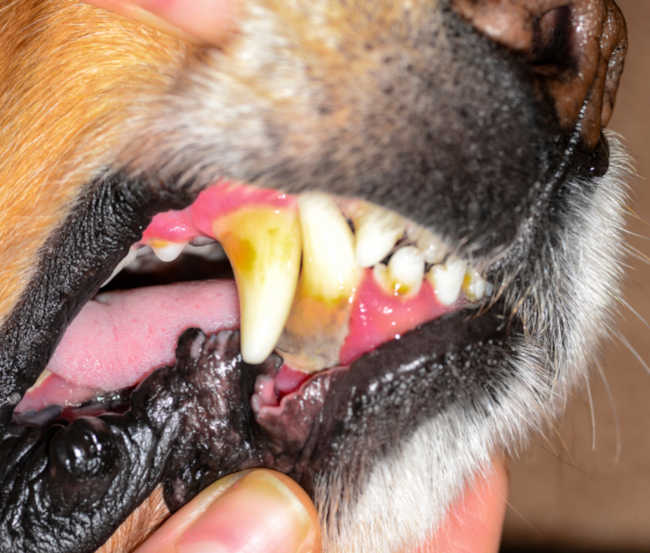
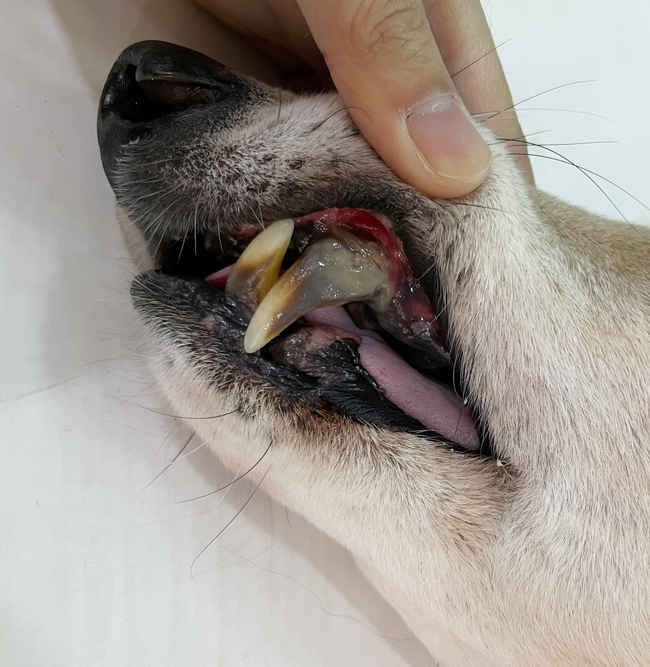
Other Signs of an Abscessed Tooth in a Dog
In addition to the signs outlined earlier with pictures, a dog with a tooth abscess may also experience the following clinical signs:
- Drooling
- Dropping food
- Reluctance to eat
- Foul smell to the breath
- Blood in saliva
- Swelling or a small wound on the face/muzzle
Steps you can take at home to help your dog
The most important step to take at home to help our dog is to provide appropriate dental care before an abscess has the chance to form. Dogs should have a thorough oral examination at least annually. The frequency of needed dental prophylaxis and cleaning under anesthesia will vary from dog to dog, but most adult dogs will require this procedure, under general anesthesia, every six months to two years.
If you think your dog is suffering from a tooth abscess, they need to be seen by their veterinarian as soon as possible. In the meantime:
- Offer them either canned food or their kibble softened with warm water to enable the to eat more comfortably.
- Never give any human pain relievers to your dog without the direct direction to do so by a licensed veterinarian. Many of these medications are toxic to dogs and could result in death. Medications that are not toxic have very different appropriate dosing than they do in humans.
Related post: Emergency Veterinarian Explains When a Broken Tooth is an Emergency for dogs
When to call your veterinarian
If you suspect a tooth root abscess in your dog you must take the to see their veterinarian. The abscessed tooth will need to be addressed as soon as possible to provide comfort to the dog and to keep the infection from spreading. An abscessed tooth must either be repaired via a root canal or extracted completely. Your veterinarian can discuss options with you.
Disclaimer: This website's content is not a substitute for veterinary care. Always consult with your veterinarian for healthcare decisions. Read More.


Be the first to comment